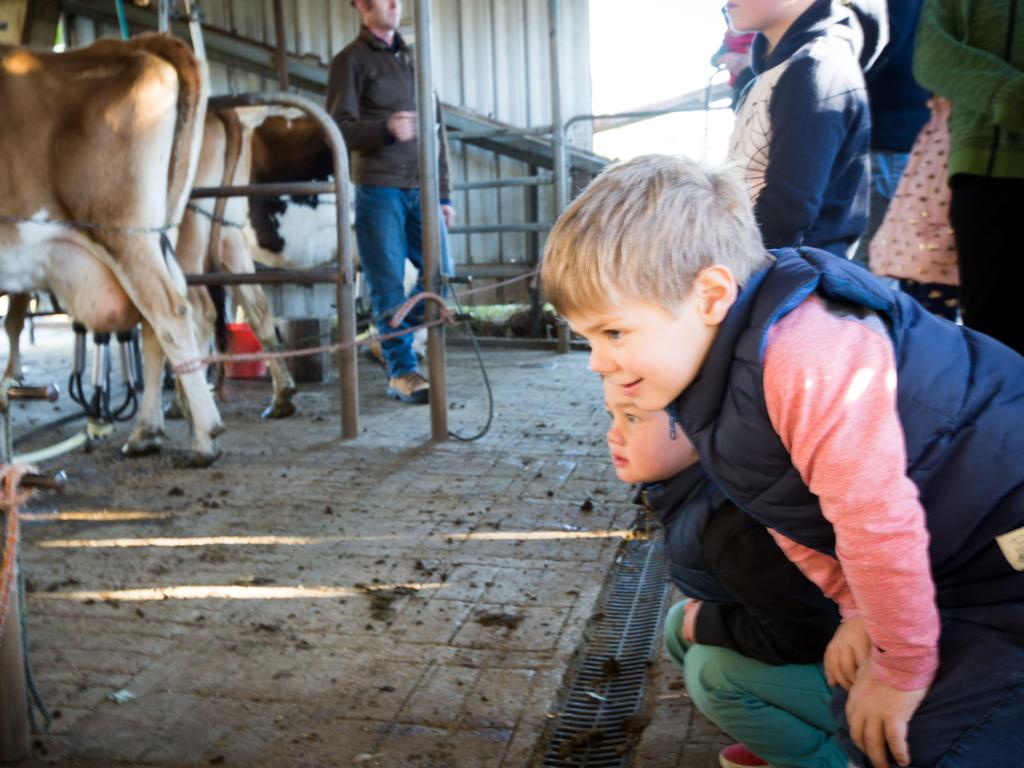Seaweed is shaping up as the secret to slashing methane* produced by dairy cows.
Research director Professor Joe Jacobs is working with grazing cows at Ellinbank Research Farm in Victoria’s east to identify which additives* can be given to cows to reduce their emissions* when they come for dairy milking.
Enteric* methane is the Australian agricultural sector’s biggest source of emissions.
“There are feed additives that are being considered game-changers when it comes to reducing methane emissions,” Prof Jacobs said.
Something as simple as seaweed could make a huge difference.

Seaweed has a much bigger effect than other additives such as oil, which only cuts emissions by about 20 per cent.
“The one that’s really spoken about a lot is red seaweed,” he said.
“When that’s been tested in-vitro* in the laboratory, it’s shown over 90 per cent methane reduction.”
Overseas studies of animals in feedlots* showed reductions of 50 to 70 per cent, but in Victoria most cows graze in paddocks.
As part of the team’s research, cows have been fitted with devices to measure the methane they emit*.

Prof Jacobs said it was important to measure how dietary changes affected milk production as well as emissions.
It was critical to find a supplement that reduced emissions without reducing the amount of milk produced, or the taste and quality.
Prof Jacobs said the trial was supported by a $3.9m state government grant, and also had buy-in from industry.
“(Farmers) are always keen to enhance the environment, be sustainable*,” he said.
“The ideal additive will be one that reduces methane and ideally increases milk production to offset the costs of the additive.
“Ideally, it produces more milk and makes it cost effective.”
GLOSSARY
- methane: colourless, odourless, flammable gas, also a greenhouse gas
- additives: substances added to food in small quantities to improve them
- emissions: gases produced and released into the environment that are harmful
- enteric: intestinal, relating to or occurring in the intestines
- in-vitro: in an artificial environment outside the body, as in a test tube
- feedlots: area or building where livestock is fed
- emit: release, let out, discharge
- sustainable: causing little or no harm to the environment in an ongoing way
'일상생활(思) > 교육,학습' 카테고리의 다른 글
| 초등 EBS 인강 (0) | 2022.01.14 |
|---|---|
| [학습/교육] 본받고 싶은 블로거들 (0) | 2021.12.08 |
| [필기체] A-Z (1) | 2021.12.07 |
| [IELTS] Speaking Vocabulary: Ultimate Guide (1) | 2021.11.13 |
| [IELTS] Introduce yourself (1) | 2021.11.06 |


댓글